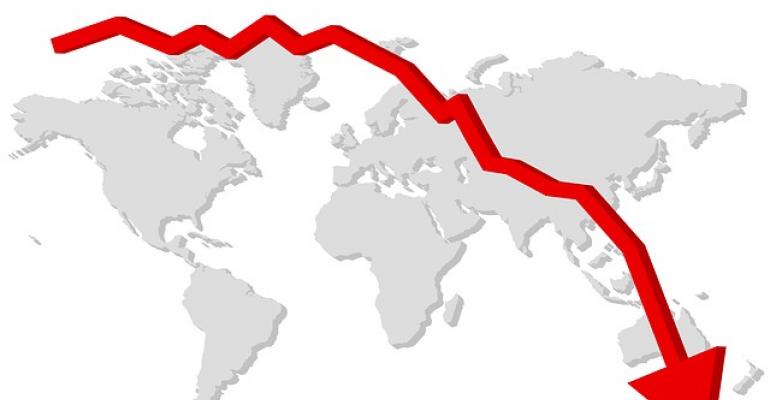Today there is a new report from Gartner that shows a further drop in sales and market share for Microsoft's struggling phone business.
According to the announcement, which focuses on worldwide smartphone sales for the first quarter of 2016, overall sales grew 3.9 percent.
As you head further into the data provided by Garter you can see that Windows mobile hardware did not get any share of the overall growth. In fact, the information shows that Windows devices declined from nearly 8.3 million sold in the first quarter of 2015 to just 2.4 million sold this past quarter. That drop in sales brings the Windows share of the mobile market from 2.5% last year to just 0.7% this year.
No doubt very sobering numbers but not an unexpected outcome by any stretch of the imagination when a company is making the big changes in that area that Microsoft is undertaking.
Ever since last July when Microsoft's CEO, Satya Nadella, laid out the restructuring of the companies phone business it was inevitable that market share would decline rapidly.
“We are moving from a strategy to grow a standalone phone business to a strategy to grow and create a vibrant Windows ecosystem including our first-party device family,” Nadella said. “In the near-term, we’ll run a more effective and focused phone portfolio while retaining capability for long-term reinvention in mobility.”
This of course was also the same quarter that Microsoft took a $7.6 billion dollar charge relating to the original purchase of Nokia just a few years earlier.
Since then we learned that the focused portfolio meant no longer manufacturing low end Lumia devices and just releasing three new handsets by the end of 2015 with the Lumia 650, 950 and 950 XL.
In the last week Microsoft announced the sale of their feature phone business, part of their original Nokia purchase, for just $350 million dollars to a subsidiary of Foxconn and a new company called HMD Global. Those two companies will work together to produce Nokia branded tablets and phones which run the Android OS.
Along with that sale, Microsoft also revealed their future plans for Windows 10 mobile and the Lumia phone hardware line:
“Microsoft will continue to develop Windows 10 Mobile and support Lumia phones such as the Lumia 650, Lumia 950 and Lumia 950 XL, and phones from OEM partners like Acer, Alcatel, HP, Trinity and VAIO.”
So Windows 10 mobile continues, which is expected since Windows 10 is a OneCore OS, but it also looks like Microsoft has built their final Lumia branded handset as well.
This means that for the foreseeable future there will be quarterly declines in sales and market share for Windows mobile hardware. When you are not building new devices it is easy to fall behind in sales and market share - that is a fact which is as reliable as gravity.
Microsoft knows this is the case but currently that appears to be their plan and they seem to focused on completing Windows 10 while Windows mobile hardware lies in a state of hibernation.
Of course, reality is that even with several OEMs building Windows mobile hardware and Microsoft possibly preparing to focus their mobile hardware efforts on a single device such as the Surface Phone, it is unlikely that Microsoft will ever challenge Android and iOS for a significant chunk of market share ever again.
I will say this though, which I have said before, Microsoft has proven their ability to build quality first party hardware like Surface and turn that into a very successful multi-billion dollar a year business.
Is it possible they could do something similar with a high end Surface Phone?
Sure, because anything is possible, but even if they just build this high end device for enthusiasts, businesses and Enterprise users, it is likely to be well received by their fans and sometimes you just have to keep feeding your fans good solid hardware to pick up steam.
All of this is speculation of course. There is no way any of us can accurately predict what might happen however, remember those early days of Surface and how everyone was telling Microsoft to get out of the hardware business and the fact they took a $1 billion dollar write off for some of the hardware?
How did that turn out for the Redmond company?
But, wait...there's probably more so be sure to follow me on Twitter and Google+.





